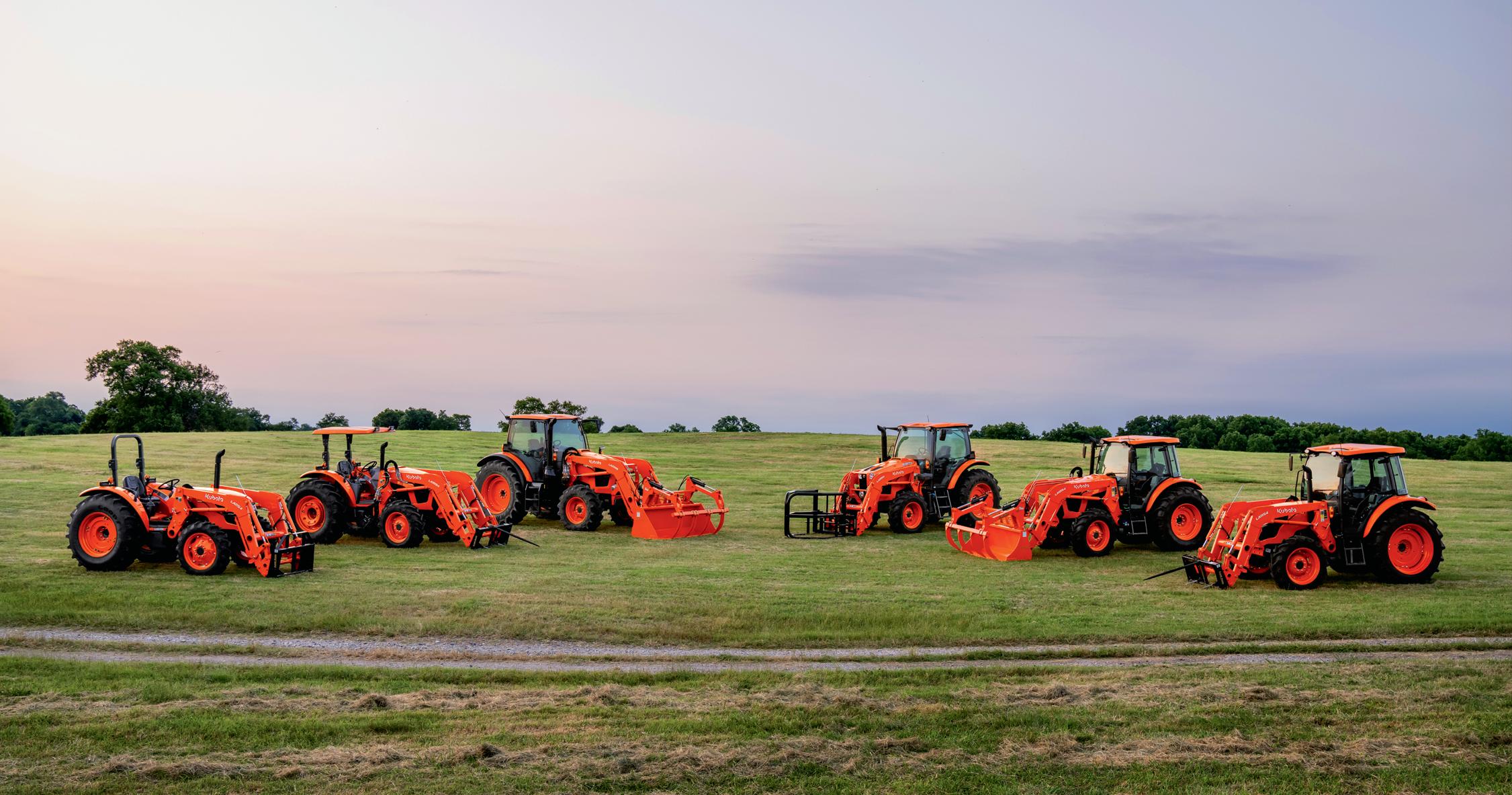
14 minute read
MANAGING FARM STRESS
FARM STRESS Managing Farm and Ranch Stress in 2022
By Laici Neumann and Brent Brewer
Even in the best of times, farming can be an incredibly high-stress occupation. Every day, farmers and ranchers deal with high-risk situations, including the use of large machinery and the handling of unpredictable livestock. In addition to significant risk to life and limb, farmers put in long hours of physical labor well into their later years. Many of their days are spent in the elements—cold, windy winters or the hot, enduring summers—while also worrying about drought, flood, wildfires and snow. When these long hours of risky physical labor in the harsh elements are combined with any number of additional stressors, farmers and ranchers can stress to a breaking point. Often piled on is the additional stressors of the modern world—financial stress, worries over volatile markets—and personal stressors—mid-life crises, marital problems, or the health of a parent, spouse or others, especially if they’re involved in the farming operation. Farm transitions can also cause intense stress. Many farms have been handed down through generations, leading to the additional stress of maintaining a legacy and the setbacks that can come when valued members of the family want to retire and cash out of the business. Add in additional concerns over alcohol or drug abuse in a family or community, medical marijuana and other substances interacting with medications, or untreated mental and physical health issues you could have a recipe for disaster. According to a University of Iowa study, farmers and ranchers have a suicide rate that averages 3.5 times that of the general population. That rate translated to more than 450 producer suicides across nine Midwestern states from 2014 to 2018. While the epicenter of the mental health crisis for farmers is the Midwest, other areas of the country are seeing an increase as well. America's farmers and ranchers have been dealing with a lot lately. As the COVID-19 pandemic drags on, the need for rural mental health assistance continues to grow. Pandemic-related stressors such as volatile markets, supply chain issues, and skyrocketing input costs have increased concerns about farm stress and the mental health of agricultural producers. These concerns are well-founded. Today’s rural suicide statistics are reaching heights not seen since the 1980s Farm Crisis. While the urban suicide rate has increased by 3% since 2017, the suicide rate among farmers has increased 27% in that same amount of time. Although farmers and ranchers experience higher levels of psychological distress than the general population, they are less likely to seek help for mental health issues. For those who do seek help, mental health resources are likely not readily available in their rural area. Perhaps most importantly, the likelihood of a farmer or rancher reaching a mental health professional who understands farming is slim to none. The stress of a farming operation is difficult to explain to those outside the industry. Even when producers can connect with a mental health professional, the cultural barrier often causes farmers and ranchers to feel misunderstood or, unfortunately, to actually be misunderstood. Frankly, the stress of a farming operation is difficult to explain. It’s just a different world. Because of this cultural divide, there is now a nationwide initiative to help farmers and ranchers find the mental health services they need. Farm organizations, agricultural lenders and other “front line” groups who interface with farmers and ranchers every day are working together to provide resources for America’s farming community. Efforts of this nationwide initiative include normalizing mental health discussions and treatments, helping farmers and ranchers manage their stress loads, and training rural citizens to recognize the symptoms of stress overload. Based in Oklahoma City, American Farmers & Ranchers (AFR) Cooperative is a general farm organization leading the farm stress initiative in Oklahoma and also providing assistance to farmers and ranchers in surrounding states. The AFR Farm Stress Management Team is a group of agricultural producers who are trained and ready to work directly with producers in mental distress. Members of the team are certified in Mental Health First Aid USA. The goal of the Farm Stress Management Team is twofold. First is to train others in Oklahoma to identify stress in their friends and neighbors. Secondly is to be the front line for
mental health crises related to agriculture in Oklahoma. If a farmer or rancher in mental distress calls the hotline, they get a real farmer or rancher—a person just like them, who understands volatile markets, loss of livestock, failed crops, and dreaded calls from lenders. One AFR Farm Stress Team member—Brent Brewer from Salt Fork, OK has farmed for decades, including through the 1980s Farm Crisis. Brewer has already taken many intense farm stress calls. The reasons for the tremendous stress these producers are under varies. One farmer couldn’t find a market for his crop. Another’s stress load was intensified by the death of family member. Another had a clinical mental health condition. Another’s bank was threatening to call in his loan. The list goes on. For each of these high-intensity phone calls, Brewer becomes an unofficial “first responder.” He evaluates the urgency and severity of the situation. If deemed necessary, he keeps the farmer on the phone until he or another member of the Farm Stress team can get to their location. Once the situation is diffused, Brewer helps the producer find clinical help or a counselor in the near future. Every circumstance has been different, but an incredible stress level was common to them all. While women are more likely to admit thoughts of suicide, men are quicker to act on those thoughts without showing any signs of stress. With every call, Brewer is certain his Mental Health First Aid training helped save a life. Brewer has also gotten many calls that were not urgent. Some farm families just need someone to talk to or help finding a resource for a specific situation. Sometimes a lender or farm cooperative manager is concerned about one of their producers. Some are single call conversations while some Brewer stays in touch with regularly. No matter the circumstances, all calls are welcome. For each call, Brewer tries to educate producers and their families to recognize stress in their own lives and to deal with their stress in nonharmful, productive ways.
PRIORITIZING SELF CARE
Stress affects our lives every day and it’s natural to get overloaded from time to time. But, if you’re expe-
riencing chronic unbearably high stress levels, finding effective coping mechanisms is a must. Here are some tips Brewer uses to keep his stress levels in check: • Get enough sleep - Sleep is a must to maintain a healthy body and a lack of quality sleep can have a dramatic impact on your stress level. When you’re stressed, you may not be able to get the rest you need. Even if you manage to get enough hours of sleep, the brain may not fully rest even if you are physically tired. • Eat right - A good diet and exercise habits are important for your overall mental health. If you’re a farmer or rancher, there’s a good chance you’re getting enough exercise and you’re probably soaking up plenty of sunshine. But, what about your diet? Try to eat a well-balanced diet. Your regular doctor can help guide you in what foods can help optimize your physical and mental wellbeing. • Socialize - Finding time to socialize can be difficult for many farmers and ranchers, but even small interactions can make a big difference. In many cases, stress levels can be decreased just by spending more time with family and friends. Church and community are also big helps to brightening your spirits. • Change locations - Separate yourself from locations of stress and from situations that feel like they mount and multiply. Regular outings or afternoon trips away from the farm can be vital to recharge your batteries. Date nights or other nights out let you leave your problems behind even for a few hours. Again, finding time is a challenge for farmers and ranchers. If needed, focus on short stints of high-quality time to get you started. • Talk to someone - It’s 2022; it’s okay to talk about your mental health. Don’t be afraid to tell others you’re struggling. Simply sharing that information with another human being will ease the stress load. The more times you share your feelings, the easier it will get.






The ultimate farm tool is ready to be yours. The ultimate farm tool is ready to be yours. The ultimate farm tool is ready to be yours. The ultimate farm tool is ready to be yours.







M Series 57.9-141.4 HP Wide range of attachmentsM Series 57.9-141.4 HP Wide range of attachments M Series 57.9-141.4 HP Wide range of attachments M Series 57.9-141.4 HP Wide range of attachments

From the M60 to the M6, the Kubota M Series has the right tractor for any job. Available right now for a great deal. From the M60 to the M6, the Kubota M Series has the right tractor for any job. Available right now for a great deal. From the M60 to the M6, the Kubota M Series has the right tractor for any job. PLUS From the M60 to the M6, the Kubota M Series has the right tractor for any job. Available right now for a great deal. $0 DOWN 0% APR UP TO 60 MONTHS SAVE UP TO $3,000 PLUS VISIT US TODAY FOR THIS LIMITED-TIME OFFER $0 DOWN 0% APR UP TO 60 MONTHS SAVE UP TO $3,000 PLUS VISIT US TODAY FOR THIS LIMITED-TIME OFFER $0 DOWN 0% APR UP TO 60 MONTHS SAVE UP TO $3,000 PLUS Available right now for a great deal. $0 DOWN 0% APR UP TO 60 MONTHS SAVE UP TO $3,000
VISIT US TODAY FOR THIS LIMITED-TIME OFFER
VISIT US TODAY FOR THIS LIMITED-TIME OFFER“The Brands That Serve" Great Plains Kubota
855-4KUBOTA - GPKUBOTA.COM RENTS
KubotaUSA.com
© Kubota Tractor Corporation, 2022. $0 Down, 0% A.P.R. nancing for up to 60 months on purchases of new M60, M4, M5, M6 and M6s Series equipment from participating dealers’ instock inventory is available to quali ed purchasers through Kubota Credit Corporation, U.S.A.; subject to credit approval. Example: 60 monthly payments of $16.67 per $1,000 nanced. Customer instant rebates of $1,500 are available on qualifying nance of M60 and M4, $2,000 on M5 and $3,000 on M6 and M6s Series equipment or $700 on cash purchases of M60 and M4, $3,000 on M5 and $5,000 on M6 and M6s Series equipment. Some exceptions apply. Offers expire 2/28/22. Terms subject to change. This material is for descriptive KubotaUSA.com purposes only. Kubota disclaims all representations and warranties, express or implied, or any liability from the use of this material. For complete warranty, disclaimer, safety, incentive offer and product information, consult your Dealer or KubotaUSA.com. 2KBB03643_M_Port_F1_1-1_1204.indd © Kubota Tractor Corporation, 2022. $0 Down, 0% A.P.R. nancing for up to 60 months on purchases of new M60, M4, M5, M6 and M6s Series equipment from participating dealers’ instock inventory is available to quali ed purchasers through Kubota Credit Corporation, U.S.A.; subject to credit approval. Example: 60 monthly payments of $16.67 per $1,000 nanced. KubotaUSA.com GPL Spring 202210 *The Great Plains Kubota Decade Warranty is additional coverage offered exclusively by Great Plains Kubota. For complete warranty eligibility and coverage information contact your local Great Plains Kubota.KubotaUSA.com © Kubota Tractor Corporation, 2022. $0 Down, 0% A.P.R. nancing for up to 60 months on purchases of new M60, M4, M5, M6 and M6s Series equipment from participating dealers’ instock inventory is available to quali ed purchasers through Kubota Credit Corporation, U.S.A.; subject to credit approval. Example: 60 monthly payments of $16.67 per $1,000 nanced. Customer instant rebates of $1,500 are available on qualifying nance of M60 and M4, $2,000 on M5 and $3,000 on M6 and M6s Series equipment or $700 on cash purchases of Customer instant rebates of $1,500 are available on qualifying nance of M60 and M4, $2,000 on M5 and $3,000 on M6 and M6s Series equipment or $700 on cash purchases of M60 and M4, $3,000 on M5 and $5,000 on M6 and M6s Series equipment. Some exceptions apply. Offers expire 2/28/22. Terms subject to change. This material is for descriptive purposes only. Kubota disclaims all representations and warranties, express or implied, or any liability from the use of this material. For complete warranty, disclaimer, safety, incentive offer and product information, consult your Dealer or KubotaUSA.com. 2KBB03643_M_Port_F1_1-1_1204.indd © Kubota Tractor Corporation, 2022. $0 Down, 0% A.P.R. nancing for up to 60 months on purchases of new M60, M4, M5, M6 and M6s Series equipment from participating dealers’ instock inventory is available to quali ed purchasers through Kubota Credit Corporation, U.S.A.; subject to credit approval. Example: 60 monthly payments of $16.67 per $1,000 nanced. Customer instant rebates of $1,500 are available on qualifying nance of M60 and M4, $2,000 on M5 and $3,000 on M6 and M6s Series equipment or $700 on cash purchases of M60 and M4, $3,000 on M5 and $5,000 on M6 and M6s Series equipment. Some exceptions apply. Offers expire 2/28/22. Terms subject to change. This material is for descriptive purposes only. Kubota disclaims all representations and warranties, express or implied, or any liability from the use of this material. For complete warranty, disclaimer, safety, incentive
CHECKING IN
For many communities, suicide and thoughts of self-harm seem like a distant problem. However, one in every five people in the United States are living with a mental health condition. Many people are hesitant to admit they’ve had thoughts of self-harm until they hear this statistic. Only then do their stories of incredible stress and their near inability to cope come to light. Like thoughts of self-harm, stress overload and depression are often difficult to admit. It may take a friend or family member checking in to bring the situation to light. What signs of stress should you look for in farmers and ranchers? • Attending fewer social gatherings such as church, morning coffee groups or school activities or being abnormally reserved at these gatherings. • Avoiding everyday interactions like visiting with acquaintances at the local convenience store or with fellow farmers on the road. • Appearing unkempt or otherwise off from their normal appearance. • Loosing interest in work activities, such as properly tending to even small farm chores. If you notice any of these signs in a farmer or rancher you know, reach out to them. Ask them how they’re feeling and check in regularly.
WHAT ELSE CAN YOU DO?
Are you concerned about a farmer or rancher in your community? The AFR Farm Stress Hotline will connect you with Brent Brewer or another farmer or rancher to talk with you about next steps. Are you are interested in serving your community as a farm stress contact point? Brewer can connect you with courses that teach the skills needed to understand sources of stress, learn warning signs of stress and suicide, identify effective communication strategies, reduce stigma related to mental health, and connect farmers and ranchers with appropriate mental health and other resources. Are you a member of an industry and community group? The AFR Farm Stress Management Team would like to partner with you to increase farm stress management skills. The goal is to be known to rural lenders, coop managers and agribusiness owners, so they know to call the AFR team when the need arises. If your organization is interested in a Zoom or in-person training session, contact us via the hotline or at farmstress@afrmic.com.
MOST IMPORTANTLY!
If you are having difficulty coping with the stress associated with your farm, ranch or agribusiness, call the National Suicide Hotline at 800273-8255 or the AFR team directly at 833-FARM-911. A fellow farmer or rancher is ready to talk with you directly about your situation, farming stress and possible solutions.







